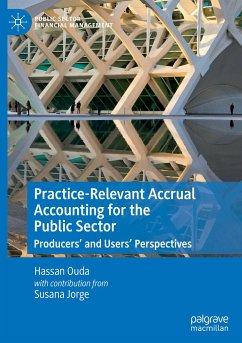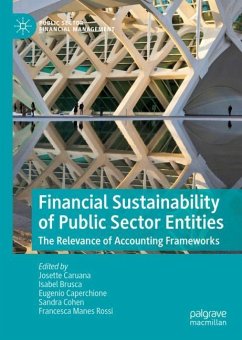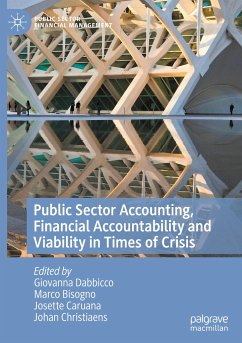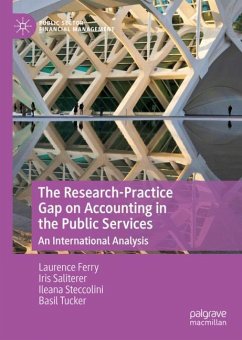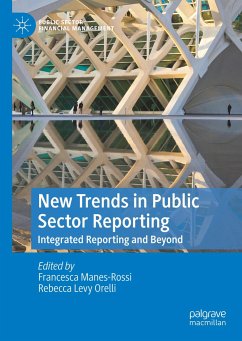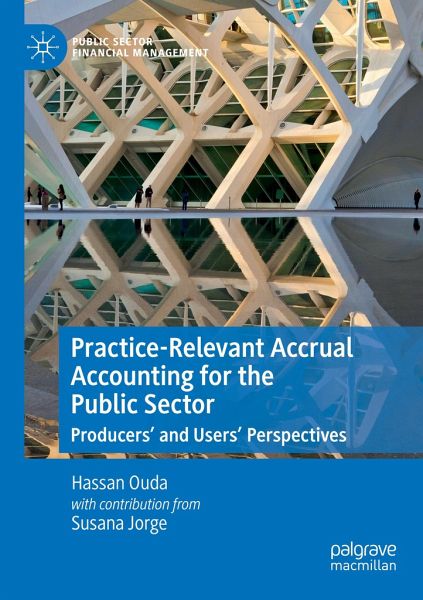
Practice-Relevant Accrual Accounting for the Public Sector
Producers' and Users' Perspectives
Mitarbeit: Jorge, Susana
Versandkostenfrei!
Versandfertig in 6-10 Tagen
83,99 €
inkl. MwSt.
Weitere Ausgaben:

PAYBACK Punkte
42 °P sammeln!
This book addresses the necessary developments and adjustments that can be regarded as a promising starting point for making accrual accounting a more practice-relevant for the public sector entities. Specifically, the main focus is on Reshaping the application of accrual accounting principles and assumptions to fit the context of public sector entities; Developing a practice-relevant holistic accounting approach for governmental capital assets, which has been based on developing and reshaping the assets recognition criteria; Scope of general purpose financial reporting from an accountability ...
This book addresses the necessary developments and adjustments that can be regarded as a promising starting point for making accrual accounting a more practice-relevant for the public sector entities. Specifically, the main focus is on Reshaping the application of accrual accounting principles and assumptions to fit the context of public sector entities; Developing a practice-relevant holistic accounting approach for governmental capital assets, which has been based on developing and reshaping the assets recognition criteria; Scope of general purpose financial reporting from an accountability perspective; Suggesting a sustainable accounting approach for reporting on the long-term fiscal sustainability; Developing a dynamic model for making public sector accrual accounting a more user practice relevant; and finally, Developing a theory of accounting information usefulness, which explains how cognitive aspects do influence the use/non-use of accounting information by the politicians. Fundamentally, the book has tackled these necessary developments and adjustments from both the producer's and the user's perspectives.





